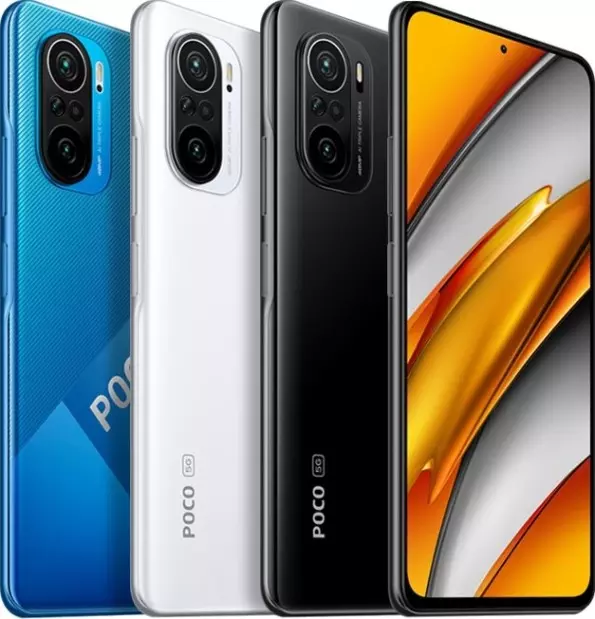How to Enable USB Debugging on Xiaomi Poco F3
By connecting the smartphone to the PC via USB cable, the user can charge the gadget or transfer files, for example. To extend the pairing possibilities, you need to enable USB debugging on the Xiaomi Poco F3. This will allow access to additional operations when the phone and the PC are communicating.
Why USB debugging is needed
Debugging is most often used by mobile app developers, as it gives access not only to the files stored on the smartphone, but also to the internals of the mobile platform. However, this mode is also used by ordinary users.
In particular, it allows you to flash your smartphone via a computer if the operation cannot be performed using standard means. Also, debugging allows you to connect to a PC without warning. That is, when pairing devices in this mode, no notification will appear on the smartphone screen asking you to select a connection mode ("Charge only" or "File transfer").
Standard activation method
Every Android smartphone, including the Xiaomi Poco F3, allows you to activate debug mode. But by default this option is hidden, so the activation takes place in two steps.
№1. Switching to developer mode
Debugging is enabled via Developer mode, which is initially hidden. Consequently, the first thing we need to do is to activate the advanced options menu:
- Open the phone settings.
- Go to "About phone".
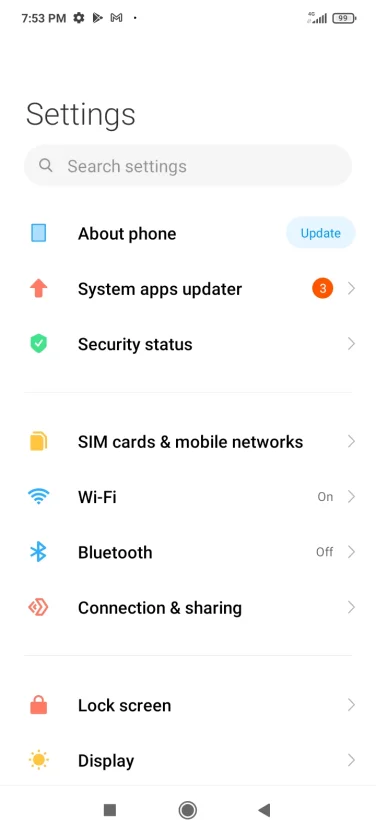
- Click 5 times on the build number or MIUI version.
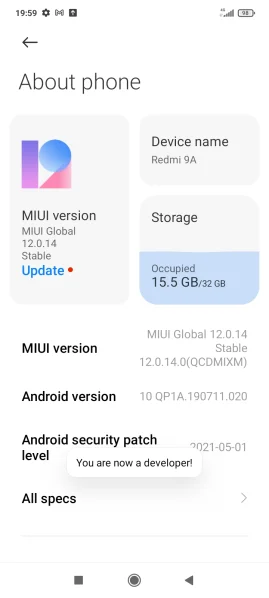
The message "You are now a developer" will appear to indicate that you have activated the missing option. You can then move on to the process of activating debugging itself.
№2. Enabling debugging
Having completed the preparatory steps, move on to the main part of the instructions, which look as follows:
- Open the Xiaomi Poco F3 settings.
- Go to "Additional settings" and then to "Developer options".
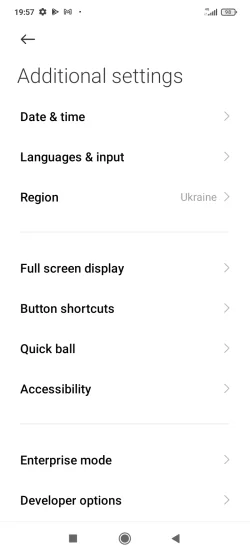
- Activate the slider next to "USB debugging".
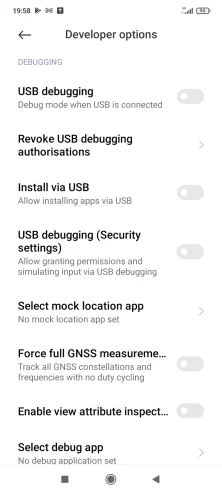
- Confirm the operation.
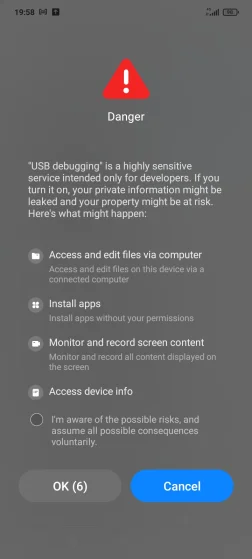
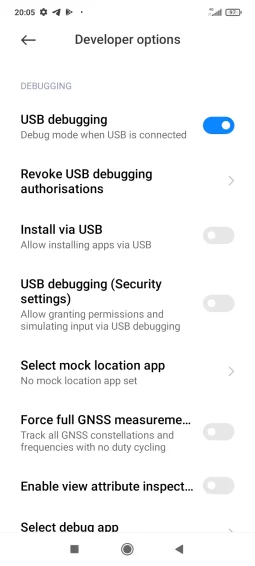
This completes enabling the option, and you can communicate with the smartphone via the computer in debug mode.
How to enable USB debugging on Xiaomi Poco F3 with broken screen
Previously mentioned, the mode in question allows you to connect your phone to a PC without giving permission for file transfer. Therefore, this option is often seen as a means of exchanging data between a PC and a faulty smartphone. However, it can be difficult to activate the mode itself.
To enable USB debugging on the Xiaomi Poco F3 if the screen is broken, you can use optional accessories:
- Insert the OTG adaptor into your phone.
- Connect your computer mouse to it.
- Follow the steps described in the previous instructions with the accessory connected.
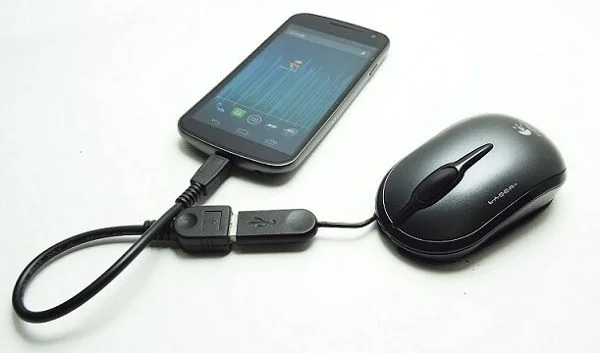
This option will help to activate the option in a situation where only the touch screen layer does not work and the information on the matrix remains readable. Otherwise, you will have to proceed at random.
How to enable USB debugging when the Xiaomi Poco F3 is locked
The principle of activating mode on a locked phone is slightly different. In this case, you cannot access the home screen or settings. You can only bypass the restrictions by first resetting the settings via the recovery. Hence, to enable USB debugging on the Xiaomi Poco F3 if the phone is locked, you need to:
- Switch off your smartphone.
- Press the power button and lower volume knob (you can also try another combination, e.g. "Volume Up" + "Power").
- Go to "Wipe data/factory reset" after the Recovery menu appears (use the volume knob to move and the power key to confirm the move).
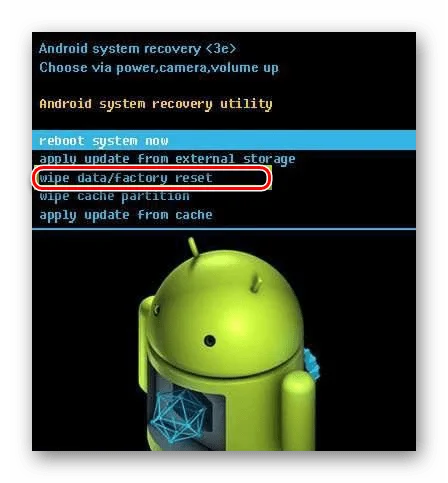
- Confirm the wipe-down.
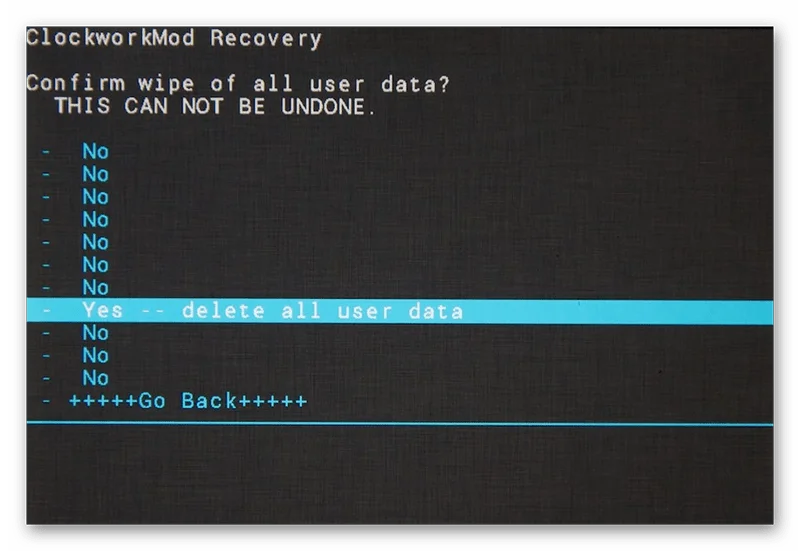
- Go back to the main menu and confirm the "Reboot system now" operation.
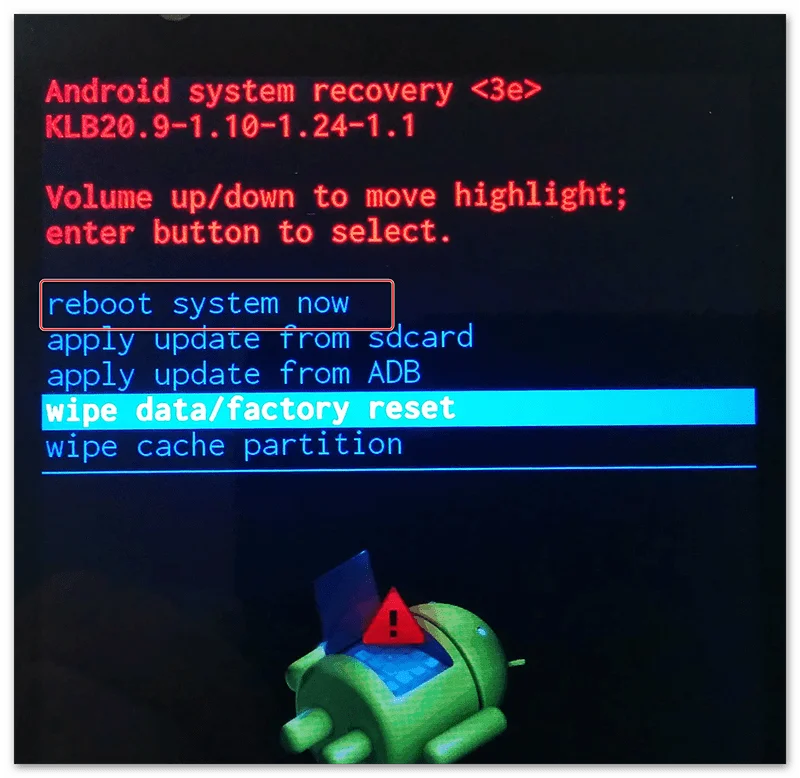
After a reboot, the Xiaomi Poco F3 will turn on unlocked and you can activate debugging via the settings menu. However, after resetting via the recovery, all files will be deleted.
Share this page with your friends:See also:
How to flash Xiaomi Poco F3
How to root Xiaomi Poco F3
Hard reset for Xiaomi Poco F3
How to reboot Xiaomi Poco F3
How to unlock Xiaomi Poco F3
What to do if Xiaomi Poco F3 won't turn on
What to do if Xiaomi Poco F3 doesn't charge
What to do if Xiaomi Poco F3 doesn't connect to PC via USB
How to take a screenshot on Xiaomi Poco F3
How to reset FRP on Xiaomi Poco F3
How to call recording on Xiaomi Poco F3
How to update Xiaomi Poco F3
How to connect Xiaomi Poco F3 to TV
How to clear the cache on Xiaomi Poco F3
How to backup Xiaomi Poco F3
How to disable ads on Xiaomi Poco F3
How to clear storage on Xiaomi Poco F3
How to increase font on Xiaomi Poco F3
How to share internet on Xiaomi Poco F3
How to transfer data to Xiaomi Poco F3
How to unlock bootloader on Xiaomi Poco F3
How to recover photos on Xiaomi Poco F3
How to record the screen on Xiaomi Poco F3
How to find blacklist in Xiaomi Poco F3
How to set up fingerprint on Xiaomi Poco F3
How to block number on Xiaomi Poco F3
How to enable auto-rotate on Xiaomi Poco F3
How to set up or turn off an alarm on Xiaomi Poco F3
How to change ringtone on Xiaomi Poco F3
How to enable battery percentage on Xiaomi Poco F3
How to turn off notifications on Xiaomi Poco F3
How to turn off Google assistant on Xiaomi Poco F3
How to turn off the lock screen on Xiaomi Poco F3
How to delete app on Xiaomi Poco F3
How to recover contacts on Xiaomi Poco F3
Where is the recycle bin on Xiaomi Poco F3
How to install WhatsApp on Xiaomi Poco F3
How to set contact photo in Xiaomi Poco F3
How to scan QR code on Xiaomi Poco F3
How to connect Xiaomi Poco F3 to computer
How to install SD card in Xiaomi Poco F3
How to update Play Store in Xiaomi Poco F3
How to install Google Camera in Xiaomi Poco F3
How to turn off Xiaomi Poco F3
How to charge Xiaomi Poco F3
How to use the camera on Xiaomi Poco F3
How to find lost Xiaomi Poco F3
How to set password on Xiaomi Poco F3
How to turn on 5g on Xiaomi Poco F3
How to turn on VPN on Xiaomi Poco F3
How to install apps on Xiaomi Poco F3
How to insert a SIM card in Xiaomi Poco F3
How to enable and configure NFC on Xiaomi Poco F3
How to set time on Xiaomi Poco F3
How to connect headphones to Xiaomi Poco F3
How to clear browser history on Xiaomi Poco F3
How to disassemble Xiaomi Poco F3
How to hide an app on Xiaomi Poco F3
How to download YouTube videos on Xiaomi Poco F3
How to unblock a contact on Xiaomi Poco F3
How to turn on the flashlight on Xiaomi Poco F3
How to split the screen on Xiaomi Poco F3
How to turn off the camera sound on Xiaomi Poco F3
How to trim video on Xiaomi Poco F3
How to check RAM in Xiaomi Poco F3
How to bypass the Google account on Xiaomi Poco F3
How to fix black screen on Xiaomi Poco F3
How to change the language on Xiaomi Poco F3
How to open engineering mode in Xiaomi Poco F3
How to open recovery mode in Xiaomi Poco F3
How to find and turn on a voice recorder on Xiaomi Poco F3
How to make video calls on Xiaomi Poco F3
Xiaomi Poco F3 sim card not detected
How to transfer contacts to Xiaomi Poco F3
How to enable/disable «Do not disturb» mode on Xiaomi Poco F3
How to enable/disable answerphone on Xiaomi Poco F3
How to set up face recognition on Xiaomi Poco F3
How to set up voicemail on Xiaomi Poco F3
How to listen to voicemail on Xiaomi Poco F3
How to check the IMEI number in Xiaomi Poco F3
How to turn on fast charging on Xiaomi Poco F3
How to replace the battery on Xiaomi Poco F3
How to update the application on Xiaomi Poco F3
Why the Xiaomi Poco F3 discharges quickly
How to set a password for apps in the Xiaomi Poco F3
How to format Xiaomi Poco F3
How to install TWRP on Xiaomi Poco F3
How to set up call forwarding on Xiaomi Poco F3
How to empty the recycle bin on Xiaomi Poco F3
Where to find the clipboard on Xiaomi Poco F3
How to Enable USB Debugging on Another Phones
